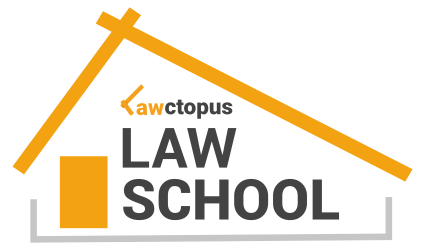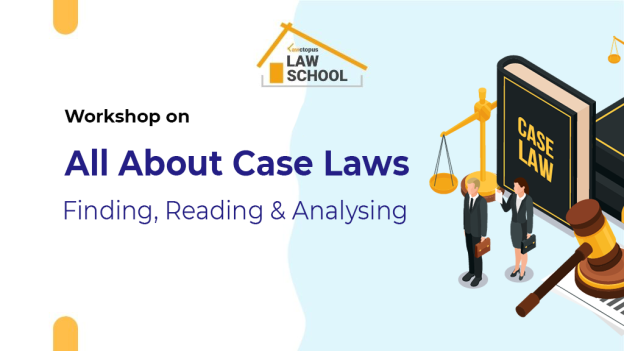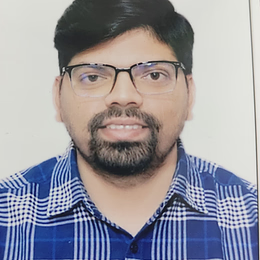Please note that this workshop was conducted on September 10-14, 2023, and has been converted into a self-paced workshop for your access
About the Workshop
Designed for law students, legal practitioners, and enthusiasts alike, this immersive workshop will equip you with essential skills in finding, reading, summarising, and analysing case laws.
Throughout this workshop, you’ll delve into advanced research techniques, mastering the art of navigating legal databases to locate the most relevant and impactful cases.
Acquire the expertise to dissect legal language, extracting critical insights during case law readings. Refine your legal writing abilities as you learn to craft concise and impactful summaries, while also honing your analytical prowess to present persuasive arguments based on precedent and legal interpretations.
About Lawctopus Law School
Lawctopus Law School has taught a wide range of practical skills to over 17000+ law students, young lawyers, professionals, academicians, and business people. Over 1000 students have rated our courses and the average rating is 92.6/100 call our online courses a ‘warm’ learning experience!
At LLS, our courses are developed by subject matter experts (practitioners and academicians) and these courses are a mix of
- rigorously researched reading modules,
- recorded lectures by industry experts,
- weekly live sessions by experts,
- assignments (with personalised feedback),
- special, add-on career webinars, and
- the now famous ‘warmth and care’ of LLS
Objectives of the Workshop
Mastering Case Law Research
- Learn advanced techniques to find relevant case laws.
- Navigate legal databases with ease to locate precedent-setting cases.
Comprehending Legal Language
- Develop the ability to read and understand complex legal language.
- Extract key insights and details from case law documents.
Crafting Concise Summaries
- Enhance legal writing skills to create concise and impactful case law summaries.
- Present case information clearly and effectively.
Strengthening Analytical Skills
- Sharpen analytical thinking to analyze case laws thoroughly.
- Interpret legal precedents and implications for future cases.
Presenting Persuasive Arguments
- Acquire skills to build persuasive legal arguments based on case law analysis.
- Formulate compelling rationales to support legal positions.
Practical Application
- Engage in mock exercises to apply learned skills.
- Receive feedback from experts to refine your research and analysis techniques.
Structure of the Workshop
Session 1 by Jaibatruka Mohanta
Finding Case law(s)
- What is case law?
- How and where to start the search operation for caselaws!
- Where to find case laws: Manupatra, SCC Online, Indian Kanoon
- How to find case laws
- Topic wise (start with the commentaries) with examples of actual commentaries to find landmark judgements
- Situation/fact related cases. Applicability to specific situation and finding applicable case laws
- Navigating SCC Online and Manupatra
Session 2 by Samanvi Narang
Reading Case law(s)
- The importance of Caselaws?
- Which caselaws are important?
- Value of caselaws?
- Case reading
- What to read
- How much to read
- Identifying the ratio decidendi
- Ratio v. Obiter dicta
- Identifying the majority judgment
- Relevance of minority/dissenting opinion
Session 3 by Jaibatruka Mohanta
Case Summary from a Case Law
- Effectively reading case-laws: The art of speed reading
- Should you always read the entire judgment
- Summarizing case laws
- Reading summary: credibility and reliability
- Relevance of case summary
- Relevant tips to optimize your case summary
Session 4 by Ankit Kaushik
Case Comment & Analysis
- Significance
- Case Comment v. Case Summary
- How to go about it?
- Is there a specific format?
- The IRAC method
Session 5 by Vershika Sharma
Discussion on Test Exercises
What will you gain?
- You will learn from the experts in the field.
- You will be learning how to effectively read judgments.
- You will learn about finding case laws on databases.
- You will learn how to analyze and comment upon case laws.
- Certificates will be awarded to attendees after successful completion of the Workshop.
Course Fee
Rs. 1200 990/-
About the Speakers
1. Ankit Kaushik
Ankit Kaushik is an Assistant Professor of Legal Research at Rajiv Gandhi National University of Law, Punjab.
He is a graduate of National Law University, Jodhpur, and a postgraduate from National Law University Delhi.
He has led the research team on the Indian Penal Code as a Research Associate with the Committee for Reforms in Criminal Laws established by the Ministry of Home Affairs, Government of India.
He has previously worked at National Law University Delhi on a major empirical research projects titled “Status of Crimes Against Women in Northern Regions of India” (sponsored by ICSSR) and “Impact and Implementation of Juvenile Justice Act, 2000” (sponsored by UGC). In 2021, Mr. Kaushik was awarded the Director Generals’ Commendation Certificate by the Bureau of Police Research and Development for his contribution in the form of a Research Project on “Use of Community Policing Mechanisms for Mitigation of Radicalisation and Evolving Effective Mechanisms for De-radicalisation.”
He is currently managing a major empirical research study titled “Status of Radicalization in India: An Exploratory Study of Prevention and Remedies” sponsored by the BPRD, Ministry of Home Affairs, Govt. of India.
He is currently the Faculty Coordinator for the Centre for Criminology, Criminal Justice, and Victimology at RGNUL, Punjab.
2. Jaibatruka Mohanta
Jaibatruka Mohanta completed his B.L.S LL.B from the SVKMs Pravin Gandhi College of Law, University of Mumbai. During his law school years, he won 3 National and 1 International Moot Court Competitions amongst other accomplishments. Since his time in Law School, he has been interested in research activities and human rights policies with an inclination towards litigation.
While in his 4th year at law school, he closely worked with the Odisha Prisons in understanding the legal representation received by convicts in Odisha’s Mayurbhanj district. He has participated in various panel discussions on policy formulation since his college days at the state and national levels.
At present after graduating from law school, he began his career as a Research Fellow at the Centre for Environmental Law, Education, Research and Advocacy (CEERA), National Law School of India University (NLSIU) to delve into cutting-edge research and policy formulation. In CEERA he is involved in policy formulation, research activities, and litigation matters. In addition, he is engaged as a faculty with Lawctopus.
3. Samanvi Narang
Samanvi Narang is associated with Jindal Global Law School, O.P. Jindal Global University as Assistant Lecturer. Her areas of specialisation include International Trade Law, Human Rights Law, International Investment Law and Corporate and Commercial Laws.
Ms. Narang completed her B.A.,LL.B (Hons.) with specialization in Energy Laws from School of Law, University of Petroleum and Energy Studies, Dehradun with remarkable academic records. For her diverse yet exceptional performance in extra-curricular activities throughout her degree program, Ms. Narang received International Council for Justice’ Award for Outstanding performance in Extra-curricular Activities. Thereon, she completed her masters in Corporate and Commercial laws from NALSAR University of Law, Hyderabad. Ms. Samanvi also holds a Diploma in International Investment Law from QueenMary University, London. She is currently pursuing her Ph.D. from NALSAR University of Law, Hyderabad in the area of International Investment Arbitration.
4. Vershika Sharma
Vershika Sharma graduated from NLU Jodhpur and completed her LLM from HPNLU, Shimla, where she secured a Gold Medal. She has worked with RGNUL, Patiala where she worked on various government funded research projects. Immensely invested in and passionate about education, Vershika has been an academic mentor at IDIA, Rajasthan and has published at various newspapers such as The Hindu and Indian Express.
Vershika has taught over 1000 students the intricacies of legal research and writing. To enhance her online teaching skills, Vershika also completed an intensive online course on ‘The Art of Facilitation‘ from Colab.x






